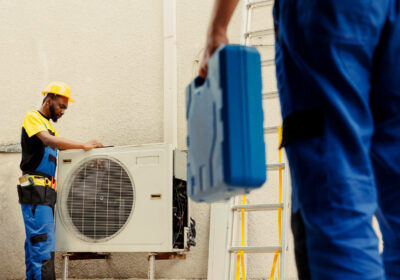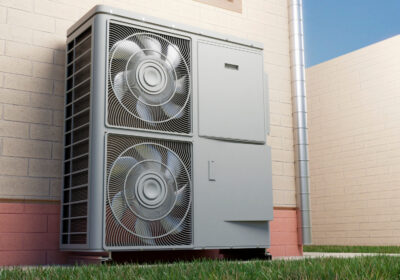Causes and Effects of Furnace Rust
Many people don’t associate furnaces with rust. Some assume that only appliances that handle water, such as boilers, can rust. Unfortunately, furnaces do rust, and with dangerous consequences. Below is an overview of some causes and effects of furnace rust.
Causes
Rusting occurs when metallic parts of the furnace suffer moisture and oxygen exposure. Below are some issues that might create such conditions.
- Poor Venting and Condensation: Water vapor forms part of the exhaust gases from your furnace. Ordinarily, the heating system vents out the gases safely into the atmosphere. High-efficiency condensing furnaces also have a condenser that captures extra heat from the exhaust gases and condenses the water vapor for safe drainage.
Anything that interferes with the venting or condensation can lead to rust. For example, the exhaust gases might condense inside the house if something blocks the flue pipe. Another problem is if something blocks the condensate drain in a high-efficiency furnace, and the condensed moisture drips onto the furnace. - Water Leaks: The water that causes rust doesn’t have to come from the furnace. Your furnace can also rust if your house or plumbing system is leaking and dripping water on it. That might be the case, for example, if you have a roof leak above the furnace area.
- High Humidity: Extremely high humidity in the house can also cause rust. Maybe you have many indoor plants, dry your clothes indoors, or don’t have a dehumidifier. Such conditions, coupled with high relative humidity, might cause condensation on some parts of your furnace.
- AC Leaks: In most homes, the air conditioner (AC) and heating system sit close together. If you have such a setup, then AC leaks can affect your furnace. Say your AC sits right above the furnace. Blockage in the AC condensate line can drip onto the furnace and cause it to rust.
Consequences
Furnace rust is not just an aesthetic problem — it has dire consequences. Below are some problems to expect from a rusty furnace.
- Accelerated Wear and Tear: Rusty metal is weaker than metal without rust. Rusty parts of your furnace might break down frequently. Thus, you might find yourself replacing furnace parts more frequently than you would without rust problems.
Metal flue pipes are particularly vulnerable to rust since they carry exhaust gases. Check your flue pipe regularly and replace it if it’s rusty. Otherwise, the pipe might develop holes and leak flue gases into your home. - Cracked Heat Exchanger: One of the worst dangers of furnace rust is a cracked heat exchanger. The heat exchanger, which is entirely metal, allows the furnace to heat your house while keeping combustion gases in check. That won’t be the case if the heat exchanger rusts and develops cracks. In such a case, dangerous combustion gases, such as carbon monoxide, might affect your household.
Moreover, the heat exchanger is expensive. You shouldn’t have to replace the heat exchanger often. - Electrical Malfunctions: In extreme cases, the rust might spread to electrical or electronic parts of the furnace. That would be bad since rust doesn’t conduct electricity as well as clean metal. The rust can insulate critical parts of the furnace and cause malfunctions. For example, rust on the blower motor can increase friction, reduce blower fan rotation, and trigger air circulation problems.
Rust is not a common problem with furnaces, but it does happen. The risk is especially high with old furnaces since rust is a gradual problem. You might have to replace the affected parts or the whole furnace, depending on the problem’s extent and the furnace’s age. Contact Baton Rouge Air Conditioning and Heating for a professional diagnosis and solution.






Share This